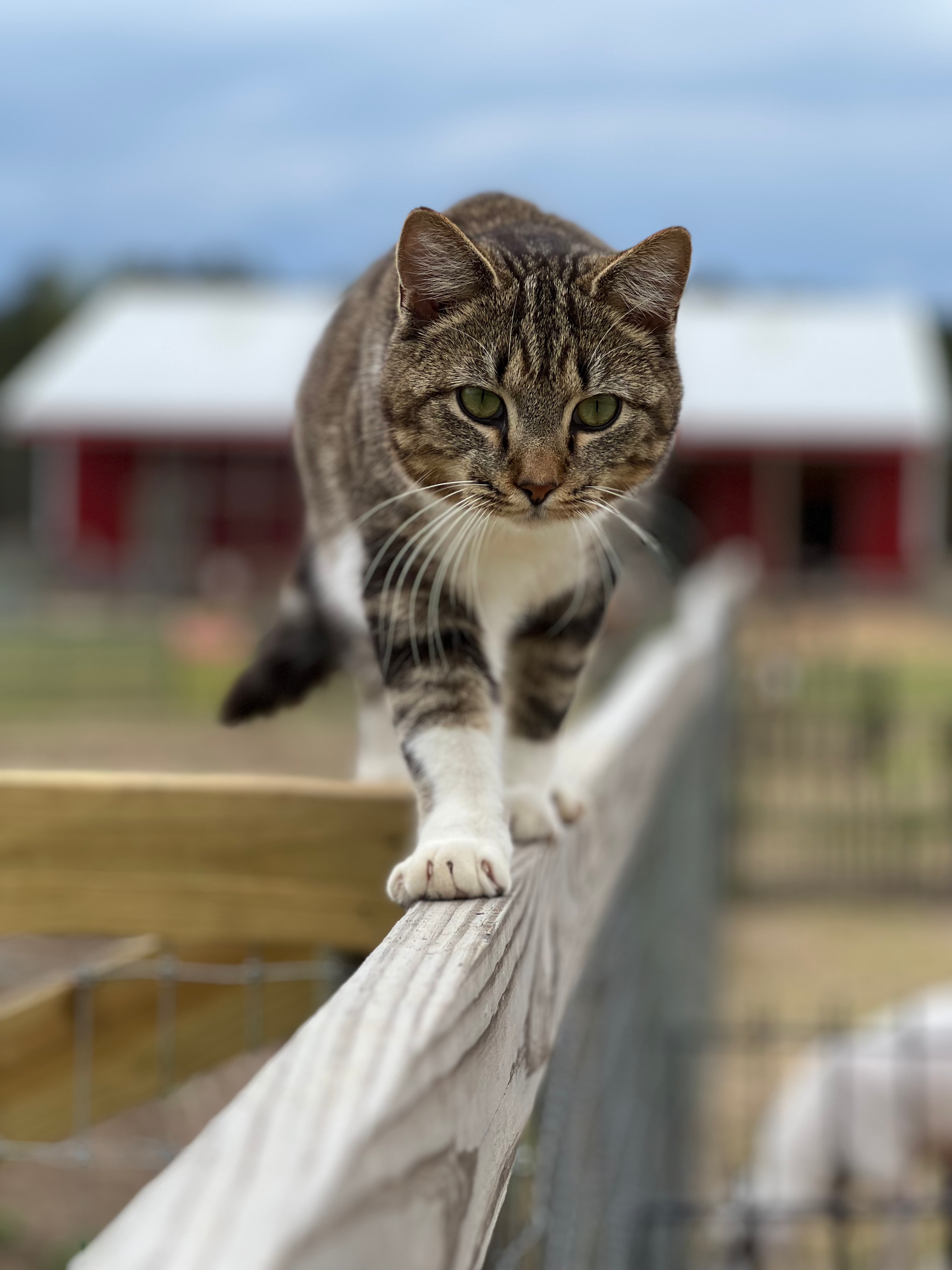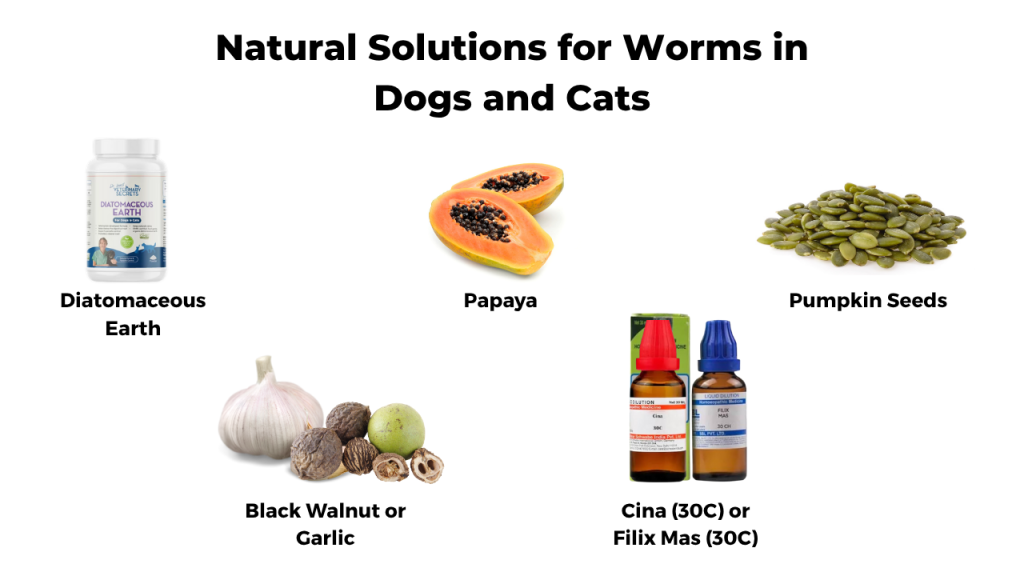If your cat is showing signs of diarrhea, weakness, or loss of appetite, you might be worried about coccidia—a common intestinal parasite that can cause discomfort and illness. You want to help your furry friend feel better without rushing to harsh chemicals or expensive treatments.
The good news? There are natural ways you can treat coccidia at home safely and effectively. Keep reading to discover simple, natural methods that can support your cat’s recovery and keep them healthy. Your cat’s well-being starts with what you do next.
Symptoms Of Coccidia In Cats
Recognizing the symptoms of coccidia in your cat is crucial for timely treatment. This intestinal parasite can cause discomfort and serious health issues if left unchecked. Understanding the signs helps you act quickly and care for your furry friend effectively.
Common Signs To Watch For
- Diarrhea:Often loose and sometimes contains mucus or blood.
- Weight Loss:Noticeable drop in weight despite normal eating habits.
- Dehydration:Dry gums, sunken eyes, and lethargy indicate fluid loss.
- Vomiting:Occasional or frequent, sometimes with bile.
- Loss of Appetite:Your cat may refuse food or eat less than usual.
- Lethargy:Reduced activity and reluctance to play or move.
These symptoms often appear gradually, making it easy to miss early signs. Have you noticed subtle changes in your cat’s behavior that might hint at digestive trouble?
When To Seek Veterinary Help
Not all cases of coccidia can be managed at home. If your cat shows severe diarrhea lasting more than two days, or if there is blood in the stool, it’s time to consult a vet immediately.
Watch for signs of dehydration or sudden weakness. These symptoms can escalate quickly and require professional care to prevent serious complications.
Trust your instincts—if your cat’s condition worsens or doesn’t improve with natural remedies, don’t hesitate to get expert help. Early intervention can make a big difference in recovery.
Causes And Transmission
Coccidia is a common intestinal parasite in cats. It causes diarrhea and discomfort. Understanding how coccidia spreads helps protect your cat. The parasite lives in the environment and inside infected animals. Cats can easily catch it by contact with contaminated surfaces or feces.
How Cats Contract Coccidia
Cats get coccidia by swallowing tiny parasite eggs called oocysts. These eggs are found in soil, food, water, or litter boxes contaminated with infected feces. Kittens and outdoor cats face higher chances of infection.
Contact with other infected cats or animals also spreads coccidia. The parasite grows inside the cat’s intestines and produces more eggs. These eggs leave the body through feces, continuing the cycle.
Risk Factors And Prevention
- Poor hygiene in the litter box or living area increases risk.
- Young kittens have weaker immune systems and get infected easier.
- Stress and poor nutrition lower a cat’s ability to fight parasites.
- Crowded or unsanitary shelters and outdoor environments raise infection chances.
To prevent coccidia, keep your cat’s living space clean. Change litter daily and clean food and water bowls often. Avoid letting your cat eat wild prey or drink stagnant water. Regular vet checks help catch infections early.
Natural Remedies For Coccidia
Natural remedies can play a key role in treating coccidia in cats, especially when you want to complement veterinary care or prefer a gentler approach. These remedies focus on strengthening your cat’s immune system and restoring balance in their digestive tract. You might be surprised how simple changes and supplements can support your cat’s recovery at home.
Probiotics To Restore Gut Health
Probiotics help bring back good bacteria that coccidia disrupts in your cat’s intestines. Adding a high-quality probiotic supplement to your cat’s diet can reduce diarrhea and improve nutrient absorption.
Look for products specifically made for cats, containing strains like Lactobacillus acidophilusand Bifidobacterium. You can mix the powder or capsules into your cat’s food daily. Have you noticed how even a small change in gut health can affect your cat’s overall mood and energy?
Herbal Treatments And Supplements
Certain herbs have natural anti-parasitic and anti-inflammatory properties that can help fight coccidia. Herbs such as oregano oil, garlic extract (in very small, safe amounts), and pumpkin seeds can support your cat’s system.
Be cautious with dosages—too much can be harmful. It’s best to consult a vet knowledgeable about herbal treatments before trying these. Many cat owners find that gentle herbal support reduces symptoms and speeds up healing.
Diet Adjustments To Support Recovery
Feeding your cat a balanced diet rich in easily digestible proteins and low in fillers helps their body focus on healing. Avoid processed foods and consider adding boiled chicken or turkey and plain pumpkin puree for fiber.
Hydration is crucial, so fresh water and wet food can keep your cat hydrated and reduce intestinal irritation. Have you tried adjusting your cat’s diet during illness? You might notice a quicker bounce back with the right foods.

Credit: drjudymorgan.com
Home Care Tips
Taking care of a cat with coccidia at home requires patience and attention. Small changes in daily routine help your cat heal faster. Focus on cleanliness, hydration, and nutrition to support recovery. These simple steps reduce infection risks and ease symptoms.
Maintaining Cleanliness And Hygiene
- Clean your cat’s litter box daily to stop parasite spread.
- Use mild disinfectants safe for pets on floors and bedding.
- Wash your hands thoroughly after handling your cat or cleaning litter.
- Keep your cat’s living area dry and well-ventilated.
- Remove any soiled or wet bedding promptly.
Hydration And Nutrition Support
- Provide fresh water at all times to prevent dehydration.
- Offer easy-to-digest food like boiled chicken or special cat diets.
- Feed smaller meals several times a day to aid digestion.
- Consider adding probiotics to help restore gut health.
- Watch for signs of poor appetite or vomiting and adjust accordingly.
Monitoring And Follow-up
Monitoring and follow-up are crucial when treating coccidia in cats naturally at home. Careful observation helps ensure your cat recovers well without complications. It also lets you notice any changes that need attention quickly.
Tracking Symptoms And Progress
Keep a daily record of your cat’s health. Note any changes in appetite, energy, and bathroom habits. Watch for signs like diarrhea, vomiting, or lethargy. Use a simple chart or notebook to track these symptoms.
- Record stool consistency and frequency.
- Note any vomiting episodes.
- Check for weight loss or weakness.
- Observe behavior changes, such as hiding or restlessness.
Tracking progress helps you see if natural treatments are working. It also guides adjustments in care, like diet or hydration.
When To Consult A Veterinarian
Contact a vet if symptoms worsen or do not improve in a few days. Seek help if your cat shows severe diarrhea or blood in stool. Immediate attention is needed for dehydration signs like sunken eyes or dry gums.
Also, reach out if your cat becomes very weak or stops eating. A vet can provide tests and stronger treatments if necessary. Early intervention prevents serious health problems.

Credit: veterinarysecrets.com

Credit: giarcidia.com
Frequently Asked Questions
What Are The Natural Remedies For Treating Coccidia In Cats?
Natural remedies include probiotics, pumpkin seeds, and garlic in small amounts. These support gut health and help reduce coccidia symptoms safely at home.
How Long Does Natural Coccidia Treatment Take In Cats?
Natural treatment usually takes 2 to 4 weeks. Consistent care and hygiene are essential to fully clear the infection.
Can Diet Changes Help Manage Coccidia In Cats?
Yes, feeding easily digestible, high-quality food aids recovery. Avoid processed foods to reduce gut stress and support healing.
Is It Safe To Treat Coccidia In Cats Without Vet Help?
Mild cases may be managed naturally, but consulting a vet is best. Severe symptoms need professional diagnosis and treatment for safety.
Conclusion
Caring for a cat with coccidia naturally can be effective. Use natural remedies like probiotics and a healthy diet. Always keep your cat’s environment clean to prevent reinfection. Monitor your cat’s health closely. Consult a vet if symptoms persist. Natural treatments can support your cat’s recovery.
Always ensure your cat stays hydrated. Patience and consistency are key in home treatments. Your cat’s well-being depends on your dedication. Natural methods can be gentle yet effective. Keep learning and adapting to your cat’s needs. Stay informed and caring.
Your cat will thank you.

